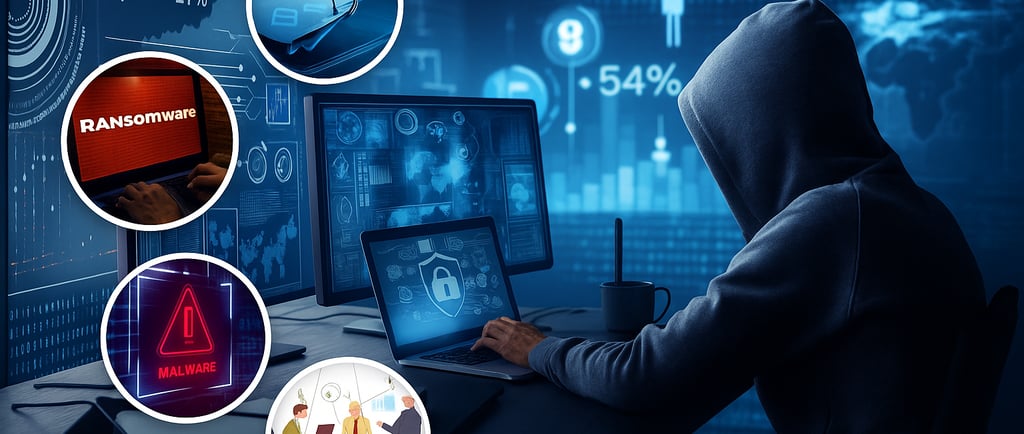Do VPNs Make You Anonymous Online?
VPN


One of the most common claims you’ll see in VPN advertisements is that they make you “completely anonymous” online. While VPNs are powerful tools for privacy, the reality is more nuanced. A VPN improves your privacy, but it doesn’t make you invisible. Let’s explore what VPNs can and cannot do when it comes to online anonymity.
What Does “Anonymity” Really Mean Online?
In the digital world, anonymity means that your actions cannot be linked back to you personally. True anonymity would mean no websites, advertisers, ISPs, or even governments could identify you.
The problem? The internet wasn’t designed with anonymity in mind. IP addresses, cookies, accounts, and device fingerprints all leave behind clues. A VPN can hide some of these—but not all.
How VPNs Improve Your Privacy
1. Hiding Your IP Address
A VPN replaces your real IP address with the one from its server. This makes it harder for websites and trackers to pinpoint your exact location or identity.
2. Encrypting Your Traffic
By creating an encrypted tunnel, a VPN prevents ISPs, hackers, or surveillance systems from seeing what you’re doing online.
3. Preventing ISP Logging
Without a VPN, your ISP can log your browsing history. With a VPN, they only see that you’re connected to a VPN server—not the sites you visit.
The Limits of VPN Anonymity
Even though VPNs add strong privacy protections, they don’t guarantee full anonymity. Here’s why:
Cookies & Tracking Scripts – Websites can still use cookies, pixels, and trackers to follow you across the internet, even if your IP is hidden.
Device Fingerprinting – Advanced trackers can identify you based on your browser type, screen size, fonts, and device settings.
Logged VPN Providers – Some VPNs may log your activity. Choosing a provider with a strict no-logs policy is critical.
Account Logins – If you log into your Google, Facebook, or Amazon account while on a VPN, those platforms still know it’s you.
Malware & Unsafe Behavior – A VPN can’t protect you from spyware, phishing, or voluntarily sharing personal information.
VPNs vs. True Anonymity
For maximum anonymity, tools like Tor (The Onion Router) are often recommended. Tor routes your traffic through multiple servers operated by volunteers, making it extremely hard to trace. However, it’s much slower than VPNs and not ideal for everyday use.
Some users even combine VPNs with Tor for stronger protection, but for most people, this is unnecessary and impractical.
When a VPN Is “Anonymous Enough”
A VPN doesn’t make you untraceable, but it can make it significantly harder for everyday entities—like advertisers, ISPs, and hackers—to collect your data. In many scenarios, this level of protection is more than enough:
Using public Wi-Fi safely
Hiding browsing habits from ISPs
Avoiding advertiser profiling
Accessing geo-restricted content without revealing your location
How to Maximize Privacy with a VPN
If you want to get as close to anonymity as possible, use these additional steps:
Pick a No-Logs VPN – Choose providers audited by independent firms.
Use Privacy-Friendly Browsers – Consider Brave, Firefox, or Tor Browser instead of Chrome.
Block Trackers – Install ad-blockers and anti-tracking extensions.
Avoid Logging Into Personal Accounts – If you need anonymity, don’t sign in to services tied to your real identity.
Combine with Other Tools – Pair your VPN with encrypted messaging apps and password managers.
Final Thoughts
VPNs are excellent tools for enhancing privacy, but they don’t grant complete anonymity. They hide your IP, encrypt your traffic, and protect you from ISP snooping, but they can’t stop cookies, device fingerprints, or companies you voluntarily log into from knowing who you are.
So, do VPNs make you anonymous online? The answer is: they make you more private, not invisible. For most people, a VPN offers more than enough protection. But if true anonymity is your goal, you’ll need to combine VPN use with additional tools and privacy-conscious habits.